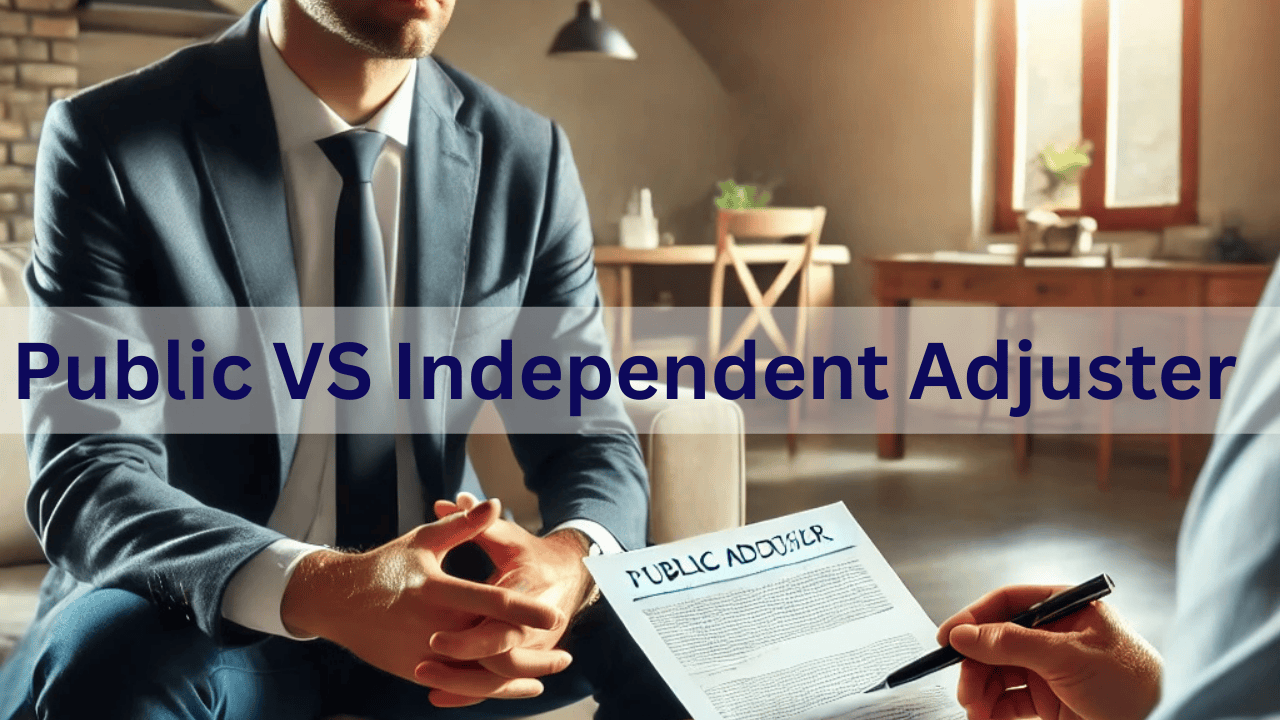Who’s Really on Your Side? Discover the Key Differences Between Public adjusters and Independent Adjusters Before Your Insurance Claim Hits a Snag!
They were facing an insurance claim and were still determining which type of adjuster to rely on: public or independent. The adjuster you choose can significantly impact your payout and how smoothly the process unfolds. Understanding their roles and differences is essential to making an informed decision that benefits you the most.
Understanding the Role of a Public Adjuster
A public adjuster is a licensed professional who advocates for the policyholder during the insurance claims process. Unlike adjusters provided by insurance companies, public adjusters represent only the policyholder, working to ensure that their client receives a fair settlement. They are precious when claims involve significant damage, delayed processing, or underpayment. Public adjusters handle everything from documenting losses to negotiating with insurers, which can relieve policyholders of the stress involved in managing claims.
What Does an Independent Adjuster Do?
Despite their title, independent adjusters are hired by insurance companies to assess damage and recommend payouts. While they are not full-time employees of any insurer, they act in the insurer’s interest. Their primary responsibility is to evaluate claims according to the policy terms and provide objective reports that help insurance companies determine settlement amounts. However, even with their objective stance, independent adjusters may lean toward minimizing the payout to align with the insurer’s goals.
How Public and Independent Adjusters Differ
The fundamental difference between public and independent adjusters lies in who they represent. Public adjusters work exclusively for the policyholder, whereas independent adjusters serve the insurance company’s needs. This distinction means that public adjusters maximize your claim, while independent adjusters ensure the insurance company meets policy obligations without unnecessary losses. Public adjusters charge a percentage of the final payout as their fee, typically 10% to 15%. In contrast, the insurer compensates independent adjusters directly, making their service free to the policyholder.
When Hiring a Public Adjuster Makes Sense
A public adjuster is handy for complex claims, such as those involving significant property damage or when an insurer disputes the extent of the loss. If the insurance company’s initial offer is far lower than expected, or if the process becomes delayed or confusing, a public adjuster can handle the negotiations. Hiring a public adjuster can be a wise investment, ensuring a fair outcome with minimal stress for homeowners unfamiliar with insurance claims or lacking time to follow up with adjusters.
Weighing the Pros and Cons of Each Adjuster
Public adjusters provide expert advocacy and are highly motivated to maximize your payout, given their compensation is tied to the final settlement. However, their services come at a cost and may be optional for small or straightforward claims. On the other hand, independent adjusters offer a free service to policyholders and are trained to provide objective damage assessments. Yet, their loyalty lies with the insurer, which could result in lower settlement offers. Understanding these nuances can help you decide which adjuster is the right fit for your situation.
Addressing Common Questions About Adjusters
Many people wonder whether hiring a public adjuster is necessary. If your claim is complex or disputed, the expertise of a public adjuster can make a significant difference. Concerns about cost are common, too. Public adjusters typically charge 10-15% of your final payout, but their fee often pays off through larger settlements for high-value claims. While independent adjusters are trustworthy professionals, it’s important to remember that they work with the insurance company’s interests in mind, which may not always align with yours.
FAQ’s
1. Do I need a public adjuster for my insurance claim?
Hiring a public adjuster is recommended for complex claims, such as those involving extensive property damage, denied claims, or when the insurer’s initial offer is lower than expected. If you feel overwhelmed by the process or suspect your payout is unfair, a public adjuster can help maximize your settlement.
2. How much does a public adjuster charge?
Public adjusters usually charge a percentage of the total claim payout, typically between 10% and 15%. This fee is deducted from the settlement, meaning their motivation is to get you a higher payout.
3. Are independent adjusters objective in their assessments?
Independent adjusters strive to be objective, but since insurance companies hire them, their assessments often align with the insurer’s interests. While they work within the policy’s terms, their goal may only sometimes be to maximize the policyholder’s payout.
4. Can hiring a public adjuster delay the claim process?
Public adjusters can sometimes extend the timeline by conducting thorough evaluations and negotiating with the insurer. However, this additional time often results in a better payout, making the wait worthwhile for policyholders with significant claims.
5. What’s the difference between a public adjuster and an insurance company adjuster?
A public adjuster works for the policyholder, advocating for a fair and maximum settlement. In contrast, an insurance company adjuster (which includes independent adjusters) works for the insurer to assess damages and recommend settlements within the policy limits.
Final Thoughts
Choosing between a public adjuster and an independent adjuster depends on the nature of your claim. If your claim is straightforward and you are confident in managing the process, working with the independent adjuster assigned by the insurer may be sufficient. However, for more complex claims where the payout seems inadequate or negotiations become challenging, hiring a public adjuster can help you secure the compensation you deserve. Consulting a public adjuster early in the process can also provide peace of mind, ensuring you receive expert advice tailored to your needs.


